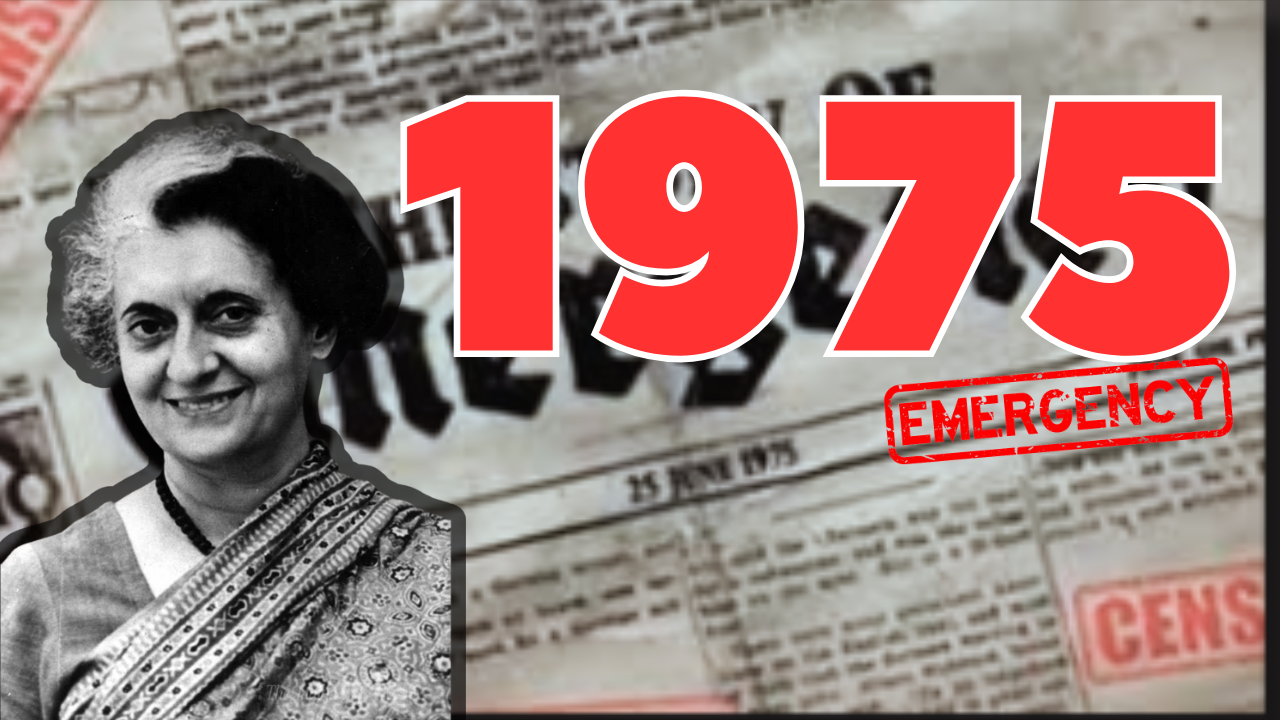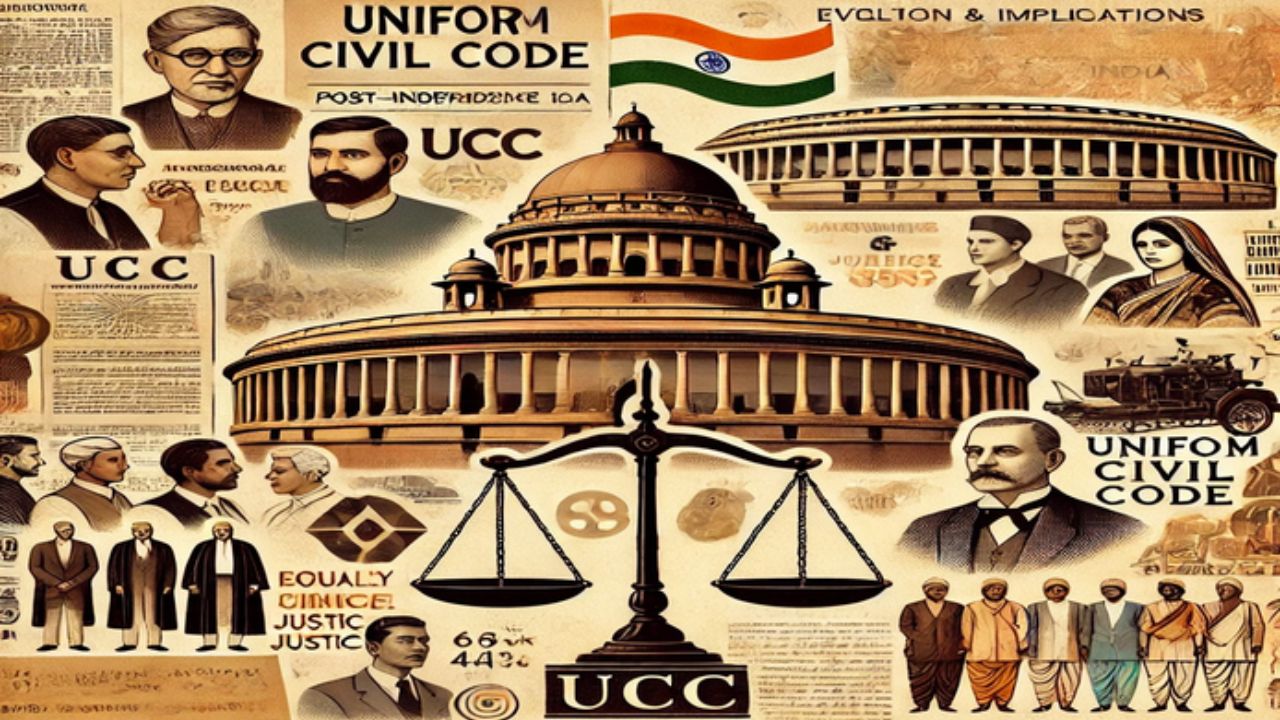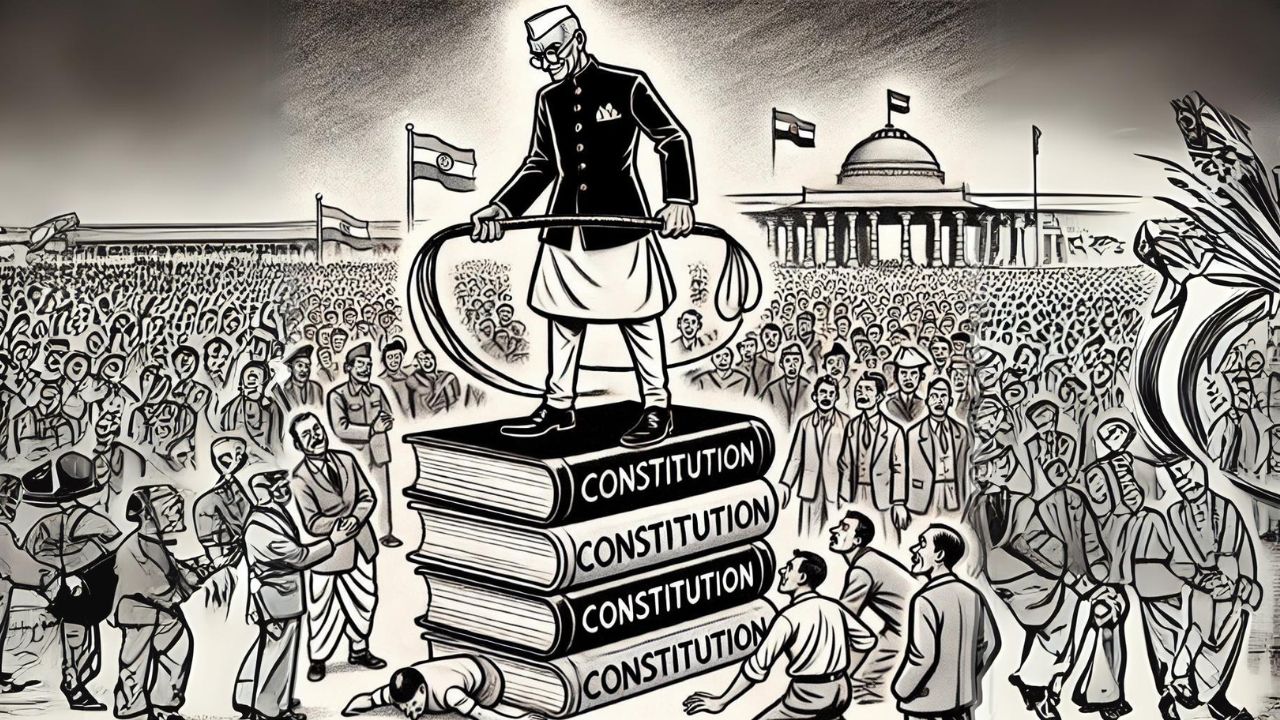REMEMBER THE WORDS- “INDIA IS INDIRA, INDIRA IS INDIA”?
In the sweltering summer of 1975, as the foundations of Indian democracy trembled, Prime Minister Indira Gandhi took a step that shook the nation’s very soul. On the night of June 25, 1975, she imposed Emergency on the country. This period became a dark chapter in Indian politics, remembered as a grievous assault on democracy and freedom.
A Move to Save Power
Following the Allahabad High Court’s conviction of Indira Gandhi for electoral malpractices, her political power was in jeopardy. The mass movement led by Jayaprakash Narayan (JP) further destabilized her government. Faced with mounting political pressure, economic distress, and growing public discontent, Gandhi resorted to imposing Emergency. Officially, it was in the name of “internal disturbance” and “national security,” but in reality, it was a desperate attempt to cling to power.
Repressive Measures and Violations
During the Emergency, thousands of opposition leaders, journalists, and activists were arrested. Fundamental rights were suspended, and press censorship was strictly enforced. Major newspapers like The Times of India and The Indian Express were forced to leave blank spaces where critical articles should have been. This was a blatant attack on freedom of expression.
Adding to the horrors, Sanjay Gandhi, Indira’s son, spearheaded a forced sterilization campaign targeting thousands of poor citizens. This campaign was a gross violation of human rights, and its brutality sparked widespread anger among the populace.
The Impact of Emergency
The Emergency left deep scars on the political landscape of India. The suspension of civil liberties meant that people’s fundamental rights were trampled upon. Arbitrary arrests, custodial torture, and suppression of political dissent became the norm. Habeas corpus petitions were routinely dismissed, and the judiciary’s independence was severely curtailed.
During this period, the 42nd Constitutional Amendment, often referred to as the “mini-constitution,” was enacted. This amendment granted Parliament unchecked power to amend any part of the Constitution and significantly reduced the judiciary’s power. It was a direct attempt to undermine the Constitution’s fundamental framework.
Political Downfall and Public Outrage
The period of Emergency led to widespread public disenchantment with the Congress party. In the 1977 general elections, the Congress was decisively defeated, and a coalition of opposition parties, the Janata Party, came to power. This marked the first instance of a non-Congress government in India, highlighting the public’s intense anger against the excesses of the Emergency.
In response to the abuses of this period, the 44th Amendment Act of 1978 was introduced, making it more challenging to declare a national emergency. It required the President to act on the written recommendation of the Cabinet and mandated parliamentary approval within a month. Crucially, the amendment ensured that Articles 20 and 21, which protect against conviction for offenses and guarantee the right to life and personal liberty, could not be suspended even during an emergency.
The JP Movement and Its Legacy
The Sampoorna Kranti (Total Revolution) movement led by Jayaprakash Narayan played a pivotal role in awakening the masses against the Emergency. JP, a veteran freedom fighter, raised his voice against authoritarianism and mobilized the public for a comprehensive revolution encompassing political, social, economic, and cultural change. He dedicated his life to protecting democratic values and fighting the misuse of power.
Lessons for Today
The Emergency of 1975 serves as a stark reminder of how easily the abuse of power can erode democratic rights. It teaches us that the strength of democracy lies not in its rulers but in its institutions and people. Emerging from this dark period, Indian democracy demonstrated its resilience and strength, reflecting our commitment to uphold the Constitution.
Today, the events of the Emergency remind us of the necessity of vigilance and awareness in protecting democracy. Abuse of power not only infringes on people’s rights but also undermines the country’s democratic foundations. We must preserve the independence of our democratic institutions and protect them from authoritarian tendencies at all times.
A Call to Remember and Act
The dark chapter of 1975 is an essential and controversial event in the history of Indian democracy. Under Prime Minister Indira Gandhi’s authoritarian policies and administrative mismanagement, the people were plunged into deep crisis. The Sampoorna Kranti movement, led by JP, provided new direction and shook the very foundations of Gandhi’s regime. The legacy of the Emergency underscores the importance of democracy and the need for constant vigilance to protect it.
This period teaches us that the fight against the abuse of power is never-ending and that we must always be prepared to defend our democratic rights. The resilience of Indian democracy, despite such challenges, highlights the enduring spirit of its people and the robustness of its constitutional framework. The 42nd Amendment and the subsequent political turmoil illustrate the critical need for checks and balances to prevent any future overreach of power.
As we look back, the Emergency serves as a powerful lesson in the importance of safeguarding democratic values and institutions against any form of tyranny. It reminds us that the true strength of a nation lies in the hands of its vigilant and empowered citizens, ready to stand against any threat to their freedom and rights.





